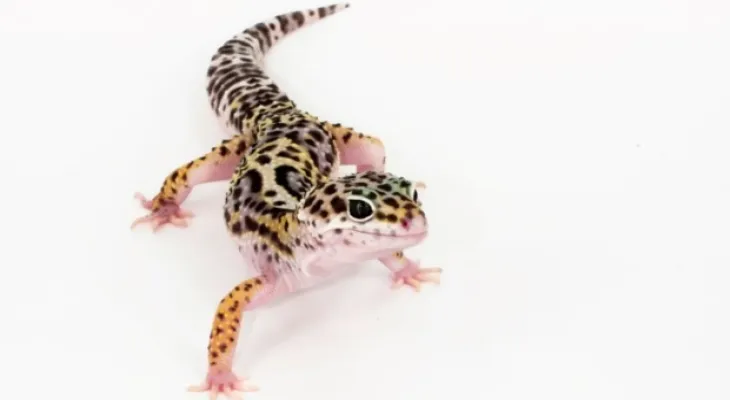Search here
Newspaper
Search here

Arab Canada News
News

Published: March 23, 2024
The Federal Public Health Agency announced that Ontario has 18 confirmed cases of salmonella infection linked to exposure to geckos.
In a notice issued on Friday, the Public Health Agency of Canada (PHAC) said it is investigating an outbreak of "Salmonella Lome" after reporting 35 cases in seven provinces so far.
"Based on the investigation results so far, exposure to geckos has been identified as a potential source of the outbreak. Many of the individuals who fell ill reported direct or indirect contact with geckos, or the environments where these pets are kept, before their illness occurred," the public health notice said.
Ontario has the highest number of cases, followed by Quebec with eight cases. British Columbia, Alberta, Saskatchewan, and Manitoba each have two cases, while New Brunswick reported one case.
PHAC said individuals fell ill between March 2020 and January 2024, with five hospitalized. No deaths related to the outbreak have been reported.
Among the cases, seven children are aged five years or younger.
The agency said: "Using a laboratory method called whole genome sequencing, it was determined that some salmonella illnesses dating back to 2020 were caused by the same strain as the outbreak that occurred in 2024."
PHAC noted that some infected individuals had not touched or handled geckos but lived in the same household where they were kept.
The health agency said: "Salmonella carrying the same outbreak strain was found in a gecko habitat in a sick person's home."
"These outbreaks highlight the important role that reptile owners and business operators can play in preventing emerging diseases associated with these types of pets."
According to PHAC, most reptiles naturally carry salmonella in their intestines, where it lives without causing them illness. For this reason, it says reptiles can transfer bacteria from their feces to their environments, leading to contamination of their bodies, attachments, and anywhere they roam.
PHAC said symptoms usually begin six to 72 hours after exposure and may last four to seven days. They include fever, chills, nausea, vomiting, diarrhea, headache, and abdominal cramps. While most cases fully recover after a few days without treatment, the agency warned that it can also lead to severe illness and hospitalization.
The agency said: "People infected with salmonella bacteria can spread salmonella to others from several days to several weeks after infection, even if they do not show symptoms," adding that bacteria can spread from person to person through personal contact and contact with contaminated surfaces.
Earlier this week, PHAC also issued a public health notice about a salmonella outbreak linked to feeder snakes and rodents.
As of March 19, 70 confirmed cases of "Salmonella Typhimurium" have been reported, including 32 cases in Ontario.
Individuals fell ill between February 2022 and February 2024. PHAC said 10 people were hospitalized, and one death due to salmonella was confirmed.
PHAC said in its March 19 notice: "No single common source for feeder snakes or rodents has been identified. The outbreak is a reminder that salmonella bacteria can be found in many types of animals, including snakes and feeder rodents."
Here are some tips from the federal agency on how to prevent the direct or indirect spread of salmonella:
Always wash your hands immediately after touching reptiles and anything they eat, or after being in the area they live, play, or touching surfaces or objects.
If you visit an exhibit or event with reptiles, wash your hands upon leaving the animal areas, even if you did not directly touch the animals.
Clean any surfaces or objects touched by reptiles with soap and water, then use a household disinfectant.
Never accept a pet reptile.
Do not keep reptiles in homes, daycare centers, schools, or other facilities with children aged five years or younger.
Always supervise children when they touch or play with reptiles.
Do not allow them to put reptiles or their supplies near their faces, or share their food or drinks with pets.
Make sure they wash their hands well after touching reptiles.
Children aged five years and under should not handle reptiles.
Keep reptiles and all their food, containers, cages, and any items that have been in cages such as plants or enrichment materials away from the kitchen and other places where food is prepared or consumed.
Where possible, clean containers and accessories outdoors. If not possible, use the sink or bathtub and clean and disinfect thoroughly afterward.
Clean or bathe reptiles in a dedicated plastic tub, not in the kitchen or bathroom sink.
Be aware of your reptile's needs. Stress can increase the shedding of salmonella by reptiles.
Always keep reptiles in habitats designed specifically for them.
If you choose to get a reptile, talk to a healthcare provider or veterinarian about reptiles suitable for your family, especially if your family includes children aged five years or younger, pregnant women, immunocompromised individuals, or adults aged 65 and older.
Comments